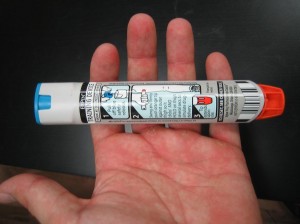Just like with any food allergy, an individual who has oatmeal allergy can develop an allergic reaction any time and can be fatal. In most cases, babies are highly susceptible to develop oatmeal allergy both external and internal. On the other hand, even adults can develop this food allergy that can be triggered by hormonal, physical or dietary changes. By being familiar with the symptoms of an oatmeal allergy, you can provide the appropriate first aid care and treatment before the overall condition worsens.
Definitive symptoms
If an individual has oatmeal allergy, the indicative symptom is a swollen belly due to the buildup of gas along with vomiting and small-sized rashes all over the abdomen. It is important to note that oatmeal is comprised of gluten which is a grain-based protein the needs a certain enzyme for proper break down. If the individual lacks this enzyme, it leads to gas formation and vomiting. Rashes are usually triggered by topical application of oatmeal but it can also occur if ingested. The appearance of rashes indicates that the body identified oatmeal as a potential threat and attempts to eliminate it. As a result, it is best to stop the application or eating oatmeal products immediately and consult a doctor.
Subtle signs
A subtle indication of a mild oatmeal allergy typically includes stomach discomfort or an aching belly right after eating oatmeal. Excessive spitting up and soft stool are also common among infants. Take note that these are usually mild but can be annoying to the individual experiencing them. These reactions can develop as early as 6-9 months of age. Understandably, it is best to restrict oatmeal and oatmeal-based formulas if an allergy is suspected and consult a doctor.

Severe signs
In severe cases, oatmeal allergy can occur rapidly and can be life-threatening. The symptoms include a swollen throat, palate and tongue can occur. If the individual feels dizzy or experiences breathing difficulty and other reactions after eating oatmeal, it is already progressing to an anaphylactic shock that requires emergency care right away.
Intensity of the reaction
The initial reactions to oatmeal can be mild at first such as stomach discomfort or small rashes that can go away after a day or two. In most cases, these reactions are merely warning indications that oatmeal is an allergen and the next allergic reaction can be severe. In case a stronger reaction occurs, seek medical care as soon as possible. Do not wait for another reaction to take place.
How to deal with an allergic reaction to oatmeal
Take note that it is not common for individuals to overcome reactions on their own and would require an anti-allergy medication. In most cases, epinephrine is given which is a strong, injectable medication that can ease the symptoms of a severe reaction, thus allowing the individual time to receive medical care. EpiPen is usually prescribed by doctors for those who are prone to severe allergic reactions.
